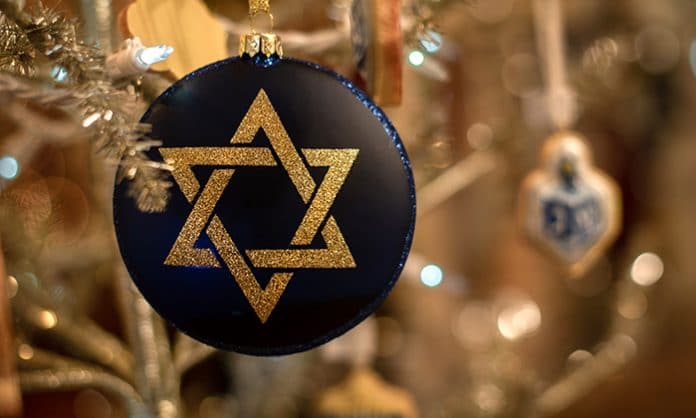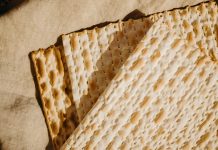In recent years, Hanukkah has become increasingly commercialized. Perhaps in an effort to keep up with the shopping frenzy ethos of the Thanksgiving—Christmas “holiday” season, my children (and many others) have come to view Hanukkah as an eight-day present-receiving extravaganza. The holiday itself is about the struggle to retain tradition and religious identity in the face of Hellenistic assimilation and is important in terms of re-dedication to core values as well as energy conservation. It also contains some of the most enjoyable holiday rituals, including eating fried potato pancakes (latkes) and jelly doughnuts, and spinning dreidels. How, then, can I teach my kids about the values inherent in this holiday and begin to distance ourselves from seeing Hanukkah as nothing more than a time to get tons of presents?
I found a surprising answer to this question this past Hanukkah. It turned out that Hanukkah overlapped with a family vacation my mother had planned for our extended family. My wife, children, and I joined my sister and her immediate family, along with my mother, for a winter cruise. Because of spatial limitations in our cabin (not to mention airline luggage restrictions), we were only able to bring a couple presents with us. We were afraid we might have a mutiny onboard after the second or third night, when our presents ran out. Instead, we were blown away by what happened. The ship had hired someone to lead Hanukkah services throughout the cruise. We anticipated that maybe a handful of people might show up. Instead, around 70 people came, and we spent about thirty minutes lighting Hanukkah candles, reciting blessings, and singing Hanukkah songs together. It was incredible!
There is something inherently unique about experiencing a religious festival while floating in the middle of the Pacific Ocean. On top of that, the service constituted an amazing display of Jewish diversity: attendees included Jews from not only across the U.S. but all over the world. They were from various denominations and included both guests and staff. While I anticipated that attendance would peter out in subsequent days, people returned in large numbers throughout the duration of the cruise. But the best part of our Hanukkah celebration was what it taught my children: to experience the pure joy and spirit (ruach in Hebrew) of Hanukkah with only song, dance, and some good food. We sang folk songs about the miracle of a day’s worth of holy oil lasting eight full days and about the bravery of the small band of warriors who were able to overthrow their Syrian-Greek oppressors. Little children danced on the stage while we sang. And we finished the service by eating latkes, dipped in applesauce and sour cream. Conspicuous in their absence were presents, yet our children didn’t seem to notice. True, my mother gave them coloring books and other quasi-educational gifts to occupy them at the dinner table, but my children’s constant pre-cruise clamoring for Legos and other toys surprisingly disappeared.
I don’t know how deeply this experience impacted my children. Perhaps they were just so caught up in the service that they temporarily forgot about toys, and next year without a similar context, their consumer-centric focus will resume. But I hope that we can provide them with the kind of communal celebration in years to come that will continue to nourish them with a sense of the spiritual opportunities inherent in the holiday rather than just placating them through presents. What I have learned from this experience is that our children are malleable—they are capable of being transformed when given the opportunity. The onus is on us to create the opportunity for them.



































